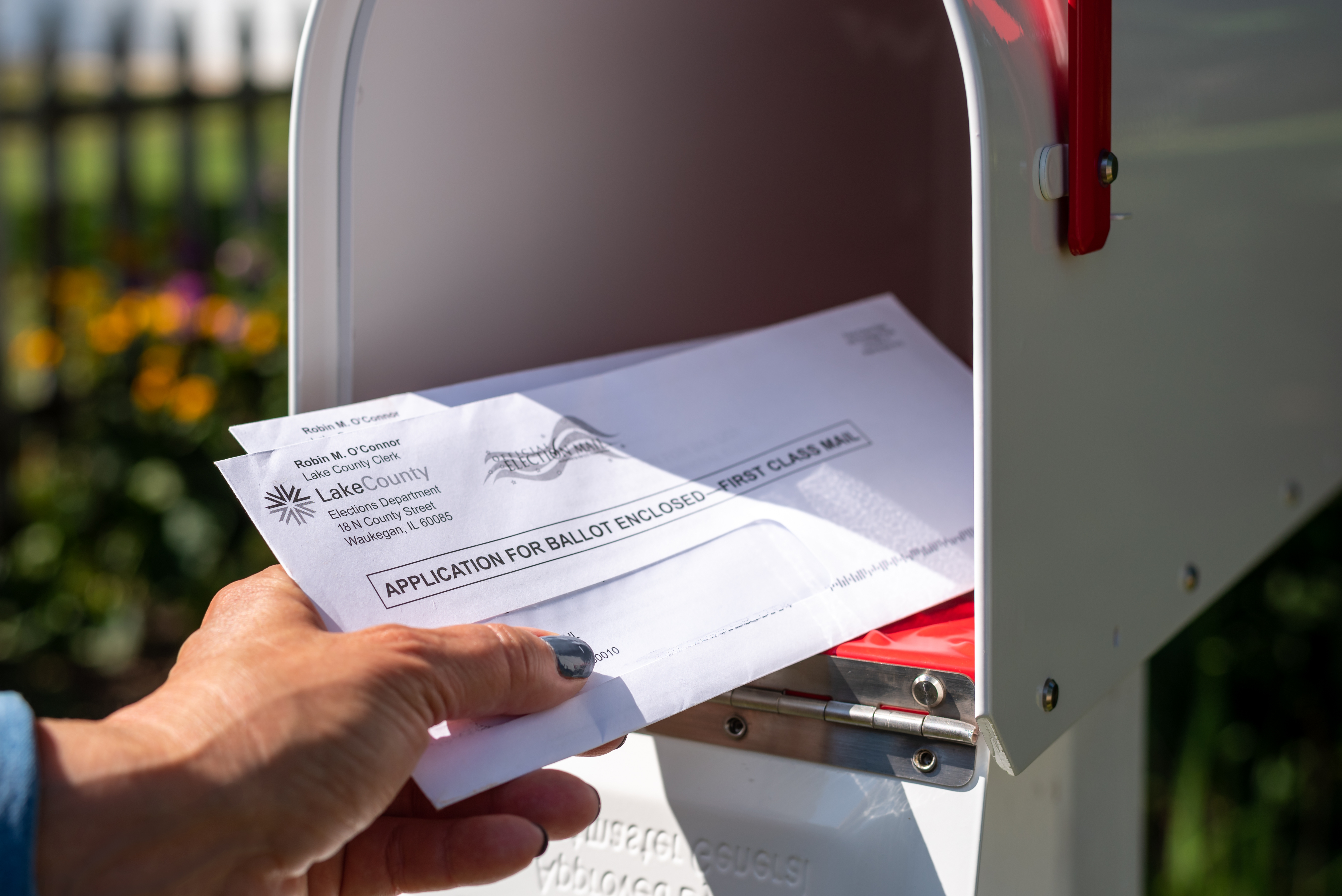For much of 2020, we’ve focused on how COVID-19 has impacted our physical and mental health, economy, and social interactions. Now, we need to add the political implications of the pandemic and the potential it will have to shape our longer-term political future, as well as issues of equality.
Health Concerns and Voting: The Vote by Mail Option
Despite the continuing political debates, voting by mail will be available in most states and may be critical for this year’s election. Fear of contracting the virus at the voting booth will decrease voter turnout, just as bad outbreaks of seasonal flu have been proven to depress voting. Read more about “How Health Affects Voter Turnout.”
None of us knows what will happen in November, but coronavirus could impact numerous voting groups: those at high risk due to age, chronic health condition and disability; parents caring for children at home due to distance learning or school closures; displaced college students and people who temporarily relocated or moved. Plus, mental and physical health challenges and disabilities already tend to decrease voting, causing a “disability gap,” which may be exacerbated even more this year.
While we cannot underestimate the effect of COVID-19, overestimating it would also be a mistake. However, small shifts in voting patterns could change the outcome of a close race. Thus, we must consider voting by mail as one option to balance coronavirus fears during in-person voting, which could be further compounded by weather and the annual influenza season.
Health Equity and Voting: Connecting the Dots
If we’ve learned one thing from the COVID-19 chapter in our nation’s history, it is that pandemics magnify existing problems, such as economic disparities or the effect of disease among our more vulnerable and marginalized population segments. Communities of color are especially impacted. COVID-19 brutally exposed the gaps in our healthcare systems and social safety nets. We are witnessing now how inequalities in health, education, income, and housing can hamstring our collective response to a crisis of this magnitude.
This year has also generated a timely conversation about how policies and politics can influence health outcomes for all.
It all boils down to what’s known as the social determinants of health, or the root causes and factors that impact a person’s health and wellbeing. This year, we’re more aware of the role politics play in that. Daniel Dawes, director of the Satcher Health Leadership Institute at the Morehouse School of Medicine, talks about the impact of politics on the social determinants of health in his recent book, The Political Determinants of Health. His research focuses on health inequality and the connection between power and political engagement – and what we need to do to achieve real equity.
What is clear is that voting not only determines what laws or policies are in place, it also plays a significant role in creating and sustaining societal inequities. This then is a clarion call for health equity advocates to make the case – to connect the dots – to civic engagement. Voting, government, and policy influence health equity in every layer of our society, but especially at the grassroots level. To address the most pressing health equity issues, we need to build awareness and understanding of the political determinants of health that ultimately hold the keys to the kingdom. The stakes have never been higher: the ultimate prize is a healthier and more inclusive society for all of us.
Kevin Clayton, national board chair at CHC: Creating Healthier Communities and vice president of diversity, inclusion and community engagement at the Cleveland Cavaliers said it well: “Exercising your right to vote has a direct correlation to health equity and health outcomes.” That’s why our organization has been raising awareness about the importance of voting, registering to vote and options like absentee ballots to vote by mail.
To take action, check out our voting resources to register to vote, request an absentee ballot, find your polling place and more. To learn more about the social determinants of health, visit our Community Health Center.
More resources:
- Become a poll worker
- Register your company for Time to Vote to give employees paid time off
- Voter participation is associated with better self-reported health (Healthypeople.gov)
- Vote like your help depends on it (Black Women’s Health Imperative)
- 55% of the voting population voted in the 2016 election (Robert Wood Johnson Foundation)
- Voting is one way to “practice our power” and improve equity and health (Medium)
- Practical tips to get out the vote in your organization (Forbes)


